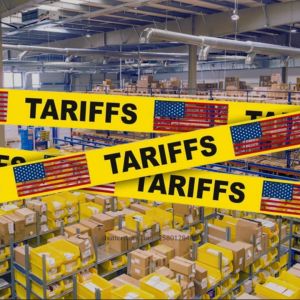The U.S. manufacturing industry reportedly contracted again in August, the sixth time in a row it has happened this year. This comes as factories struggle with the fallout from Trump’s import tariffs, which have affected the current business environment so much, some manufacturers are reminded of the Great Recession. Trump’s import tariffs may be doing more harm than good According to a survey from the Institute for Supply Management (ISM), some manufacturers have been complaining about how the sweeping import duties were making it harder to manufacture goods in the United States. Trump’s trade policy has raised the nation’s average tariff rate to the highest in a century. However, the president has defended it, calling it necessary to revive a long-declining U.S. industrial base. The base is still in decline, and government data has shown that spending on the construction of factories actually dropped in July , down 6.7% from a year ago. Also, last Friday, a U.S. appeals court ruled that most of Trump’s tariffs were illegal, contributing to the uncertainty businesses feel. “I continue to see the broad economy generally and the manufacturing sector in particular as in a holding pattern until tariff-related uncertainty recedes,” said Stephen Stanley, chief U.S. economist at Santander U.S. Capital Markets. Some of the industries that have been most affected by the fallout from the tariffs include makers of paper products, machinery, electrical equipment, appliances, and components, as well as computer and electronic products. Some makers of transportation equipment have even compared the current conditions to the 2007-09 recession. They attribute the lack of activity to “current tariff policy and the uncertainty it has created.” The sentiment was seconded by some electrical equipment, appliances, and components producers who complained that ”made in the USA” has become even more difficult due to tariffs on many components. Manufacturers of computer and electronic products have blamed the tariffs for wreaking havoc on planning and scheduling activities, saying that “plans to bring production back into (the) U.S. are impacted by higher material costs, making it more difficult to justify the return.” Meanwhile, food, beverage, and tobacco products manufacturers have warned that everything made of organic sugar was “about to get significantly more expensive” thanks to a 50% tariff on imports from Brazil and the elimination of the specialty sugar quota. The U.S. manufacturing industry is particularly susceptible to tariff fallouts President Trump’s far-reaching tariff policy has already affected the world and attracted deep and often contradictory economic consequences for the United States. It is possible for some U.S. industries to indeed experience a revival as a result of the policies, as their products become more competitive in domestic markets compared to tariffed imports. However, nobody can tell if the potential benefits will outweigh the costs of tariffs, not only for consumers who now have to deal with higher prices but also for U.S. workers themselves. Analysts have found that U.S. manufacturing industries are more exposed to tariffs on intermediate inputs compared to other U.S. industries. This undermines a key Trump administration argument about tariff effectiveness. Of the top 25 subsectors of the U.S. economy that are most affected by tariffs , 19 are in manufacturing. Other industries relatively vulnerable to tariffs include construction, mining and energy production, and repair and maintenance. In 2024, more than 23 million people were employed in these more exposed industries, but with the current trends, they could face wage stagnation or even job losses as their employers seek to pass down the costs of tariffs onto workers. KEY Difference Wire helps crypto brands break through and dominate headlines fast















